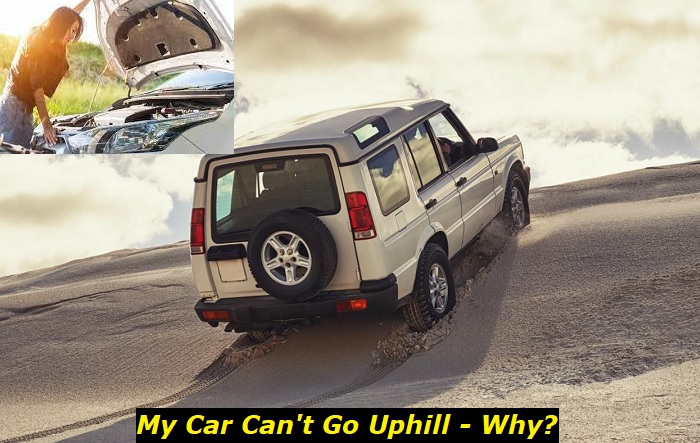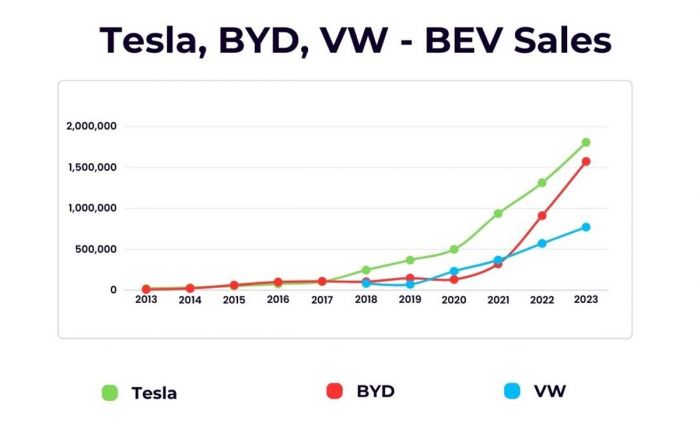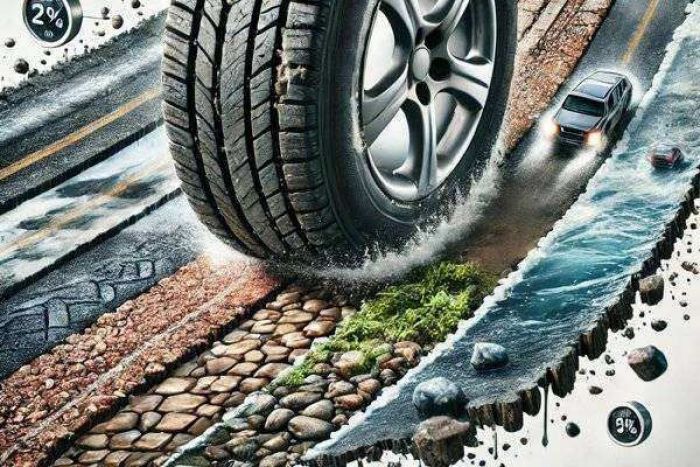Cars have become an integral part of our lives and most of us just can't live without personal vehicles. Most American families that live not in centers of huge cities own at least one vehicle, usually, it's more than just one. And it's cool when all these vehicles are working properly and not causing any problems. But what if they actually cause problems?
Engine power problems highlights
- Level of urgency:Medium
- DIY inspection:Possible but may be complicated
- DIY repair:Sometimes, possible
- Cost of repair:$200 - $650
- Can you drive?In most cases, yes
- Commonreasons:A largelist of reasons, including fuel and air supply, electronics, glitches, but not limited to those.
- Ways to fix:Use code scanner to locate the problem and solve it

What should you pay attention to if the car isn't going uphill?
Going uphill usually requires more power from a vehicle. But, in most cases, this action doesn't cause any problems because modern vehicles have more than enough power to climb almost any hill. Before we continue with possible reasons and fixes for this problem, we want to tell you what exactly you should pay attention to so that you could easily locate the reason.
Here are some important features:
- Is your check engine light on?
- Did it happen right now or was developing gradually?
- Does the engine sound OK?
- Is there any excessive vibration?
- Is gas mileage worse than usual?
- What happens when the vehicle refuses to go up the hill?
- Does the engine stall or keep working?
- Do the revs go up or stay down?
After answering these simple questions, you will be able to form a certain idea of what is going on with the vehicle. Also, if you describe to your mechanic all these symptoms, they will be able to tell you the range of possible reasons easily even on the phone.
Locating the problem by yourself may still be challenging because modern vehicles are complicated and hard to diagnose. But still, registering all these factors will be helpful.
What are the most common reasons for such a problem?
If your car struggles going up the hill, you should pay attention to several units that can cause this. In most cases, repairing your vehicle right at the roadside will be too complicated. But at least, you will know if you can drive further or should better call a tow truck.
Here are the most obvious reasons for this:
1. Limp mode
While, in most cases, the limp mode will be accompanied by a check engine light and some error messages, sometimes, it can be activated without any other indications. Limp mode is activated when there is bad engine damage, a problem with the exhaust system, issues with fuel injection, engine temperature, etc.
If the limp mode is activated, you can only use a fraction of the vehicle's power and this causes problems when going uphill.
2. Several cylinders stopped working
The reason for this may be the cylinder management system. In some modern cars, such a system works to turn off some cylinders when the load on the engine is low. This is made for better fuel economy. But such cylinder management systems prove to be unreliable and they may fail at any moment.
This means that the engine will only have limited power and the needed cylinders will not turn on to work when you need them. For example, on the hill.
3. Injection system fails
One more reason may be the injection system. Each cylinder depends on one fuel injector that sends the needed amount of fuel into a certain combustion chamber. If the injector is clogged or damaged, it will not inject the fuel and the cylinder will just not work.
If this happens with a V6 engine, you will not even notice the loss for some time. But if you have a 3-cylinder engine, the loss of one cylinder will be a significant and noticeable problem.
4. Drive system problems
In your vehicle, the engine gives all the power to the transmission. The transmission transfers power to the wheels through axles. If something happens with the drive system, the power can't get to the wheels and this may cause a total inability to move.
In some cases, you will still be able to move but most power will be just lost due to free rotation of one of the axles, for example. But when your vehicle needs to go up the hill, the drive system issue will not allow it to succeed.
5. Flat tire
This may sound like fun but flat tires are pretty common reasons why cars go so sluggishly. In most modern cars you will have so-called run-flat tires that can still be used some time after they are damaged. So, you may not even notice that the tire is flat. But it becomes too difficult for the engine to move your vehicle. Things become especially bad when you are trying to go up the hill.
6. Dying engine
All the processes in your engine depending on the compression. If the compression is optimal, the engine will produce as much power as needed. But once the compression is low, the power will be lost. And the engine will work harshly. It will start poorly, it may stall at times, and it will obviously drink up some oil and burn a lot of fuel.
The dying engine may just not be able to get your vehicle uphill if things are too bad. This means the engine needs overhauling or replacement.
7. Turbo failure
If you are driving a turbocharged engine, it may act like this if the turbocharger fails. These engines are programmed to work in a tandem with turbo. If the turbo fails, they stop producing as much power as they are intended to produce. This may lead to total sluggishness and even complete engine death if you continue driving the engine.
We may also come up with other possible reasons like ignition problems, air supply, bad fuel, engine sensor issues, overloading, etc. But the seven reasons we've listed above should be considered the most common and worth checking right when you face the problem.
What should you do if your car isn't going uphill?
While in most cases, this will be pretty safe and you will just need to call for help, in some situations, the inability to make your vehicle go up the hill may cost you health and even life. For example, if you are driving your off-road vehicle in a remote area with nobody around and suddenly the car loses power and can't go up the hill, things may be too bad.
Here's what you should do if you find your vehicle is unable to go uphill:
- stop your car and try inspecting it using the common possible reasons that we've listed above;
- if you can't find the reasons for this problem, call for help - ask a friend to come and help you or call a mechanic;
- if things don't work this way, call a tow truck if you don't have any other way to move your vehicle to the repair shop;
- if this is not going to work in your case, try changing your route and going to the nearest repair shop;
- unload your vehicle to make it lighter and try getting it uphill this way, you may also want to speed up before you approach the hill.
We recommend stopping the engine and not turning it on again until you understand what's going on with your car. But in cases when your health or even life depends on whether you can drive further, the vehicle is not important at all. So, if it's dangerous to stay where you are, try and get out of that place whatever it takes.
If it's safe, you should turn off the engine and call for help. Even if it takes a couple of hours to wait for help, it's worth it because you will not destroy the engine and will be able to repair the car.
How can you solve the problem with your vehicle?
In terms of repair, we don't recommend any DIY repairs unless it's a flat tire and you can just take the spare wheel out of the trunk, mount it and go further. Any DIY repairs in modern vehicles may appear to be a big mistake because they can lead to even worse expenses in the future.
We recommend getting your car to the repair shop. First of all, tell the mechanic what you noticed - answer those questions that we've listed at the beginning of this article. The mechanic will be able to diagnose the vehicle and locate the problem faster.
After that, the repair shop will offer you the most appropriate way to solve the problem. The cost of repair is unpredictable because it highly depends on the results of the inspection. If it's about a bad spark plug, the repair will cost you a little money but when it comes to serious issues with the compression or cylinder management, you will not be glad to hear the estimated costs.
About the authors
The CarAraC research team is composed of seasoned auto mechanics and automotive industry professionals, including individuals with advanced degrees and certifications in their field. Our team members boast prestigious credentials, reflecting their extensive knowledge and skills. These qualifications include: IMI: Institute of the Motor Industry, ASE-Certified Master Automobile Technicians; Coventry University, Graduate of MA in Automotive Journalism; Politecnico di Torino, Italy, MS Automotive Engineering; Ss. Cyril and Methodius University in Skopje, Mechanical University in Skopje; TOC Automotive College; DHA Suffa University, Department of Mechanical Engineering






Add comment